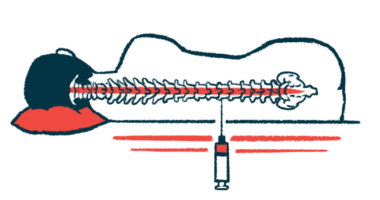FDA final approval decision on NurOwn for ALS due by year’s end
FDA advisory committee meeting on therapy's benefits set for Sept. 27

A final decision by the U.S. Food and Drug Administration (FDA) on whether or not to approve NurOwn for amyotrophic lateral sclerosis (ALS) is now expected no later than Dec. 8.
But before that, on Sept. 27, an FDA advisory committee will meet to review the potential benefits of the BrainStorm Cell Therapeutics experimental cell therapy, according to a company press release. That ADCOM meeting, to be held by the agency’s Cellular, Tissue and Gene Therapies Advisory Committee, will be available for live streaming.
The committee will provide the FDA with an independent recommendation for its use in considering regulatory approval for the ALS therapy candidate. However, the agency is not required to follow the committee’s recommendation.
The ADCOM meeting comes after the agency refused to review a biologics license application (BLA) for NurOwn, filed by BrainStorm in September 2022, due to a lack of strong evidence of the therapy’s benefits in clinical trials. Brainstorm says that application now has been amended to address most of the FDA’s concerns.
“We remain confident in NurOwn and believe our data support regulatory approval,” said Stacy Lindborg, PhD, co-CEO at BrainStorm, adding, “As is the case with most ALS research, our clinical program generated complex results, which deserve a thoughtful and holistic review by scientists, ALS experts, FDA reviewers, advocates, and patients.”
ADCOM meeting set for NurOwn after Brainstorm’s file over protest
BrainStorm was granted the ADCOM meeting after its use of the FDA’s “file over protest” procedure following the rejection of the BLA. As its name suggests, the file over protest procedure means that a company proceeds with filing a regulatory application despite the agency’s objection, which makes an advisory committee meeting possible.
Patient groups also had called for an ADCOM meeting after the FDA’s refusal to review NurOwn’s BLA. Five individuals with ALS treated in the NurOwn clinical trials and two family members of patients who died from the rare disorder had sent a written letter to the FDA in support of such a meeting.
“We believe this approach honors the needs of those living with ALS and offers the greatest promise for BrainStorm to fulfill our commitment to the ALS community,” Lindborg said of the upcoming meeting.
We are encouraged by the regulatory flexibility that the FDA has shown over the last year in ALS broadly, and with respect to NurOwn in particular, and believe an Advisory Committee meeting is good for patients.
NurOwn is a cell-based therapy in which mesenchymal stem cells — which can give rise to a variety of cell types — are harvested from a patient’s bone marrow and matured in the lab into cells that produce large amounts of signaling molecules that promote nerve cell health and growth.
The modified cells are then injected into the patient’s spinal canal to promote and support nerve cell repair, which is expected to help slow disease progression.
A Phase 3 clinical trial (NCT03280056), completed in 2020, had tested NurOwn in patients with rapidly progressing ALS, who were given three injections of either the therapy or a placebo two months apart. The trial involved 189 adults followed for 28 weeks, or about seven months.
The results showed that NurOwn was not significantly more effective than a placebo at slowing disease progression, measured by the ALS functional rating scale (ALSFR-R). But according to BrainStorm, this was likely due to a large proportion of trial participants with advanced ALS — a population that already has the lowest scores in some ALSFR-R subscales.
Brainstorm said that the participants’ advanced disease likely prevented the proper detection of changes in ALS progression.
Subsequent analysis excluding patients with more severe ALS showed evidence of the therapy’s effectiveness in slowing ALS progression, with statistically significant differences in ALSFR-R.
NurOwn consistently reduced markers of inflammation and neurodegeneration in the cerebrospinal fluid, the liquid surrounding the brain and the spinal cord, while increasing markers of neuroprotection. The levels of three of these biomarkers could predict clinical response to NurOwn.
“We are encouraged by the regulatory flexibility that the FDA has shown over the last year in ALS broadly, and with respect to NurOwn in particular, and believe an Advisory Committee meeting is good for patients,” said Chaim Lebovits, president and CEO at BrainStorm.
“We are of course deeply committed to the scientific and regulatory process, which includes continuing research to confirm the results of the NurOwn clinical program and are working with ALS experts in designing a rigorous clinical study to answer important questions about this therapy and inform further research on ALS,” Lebovits added.







